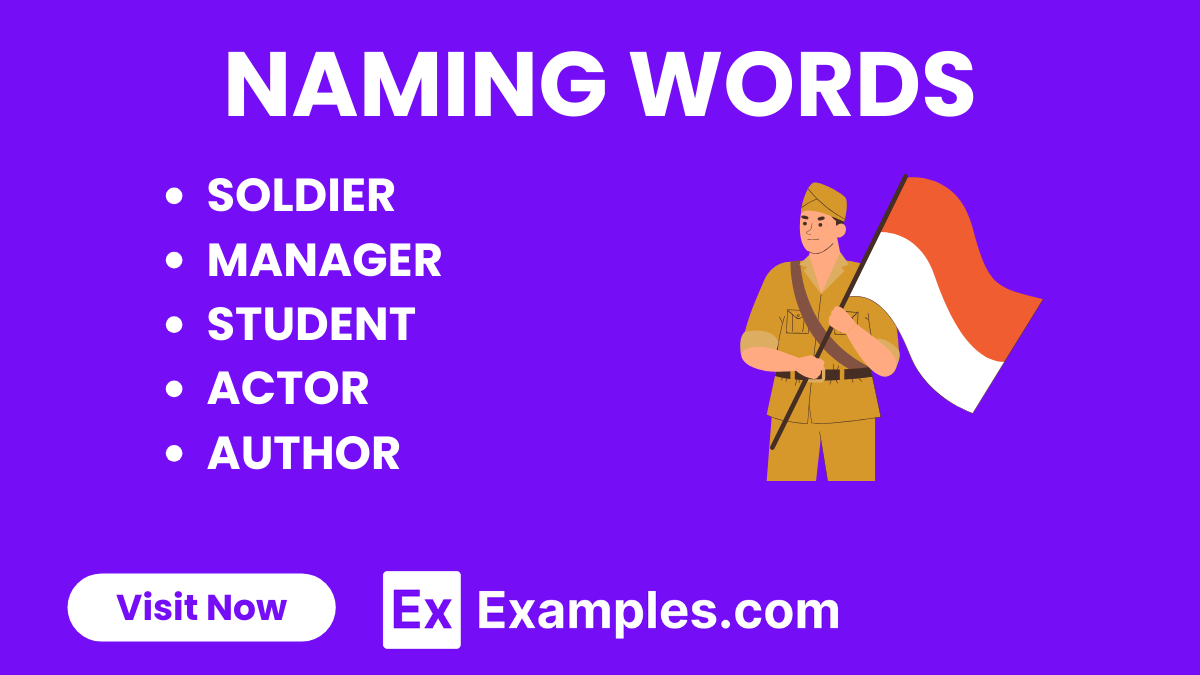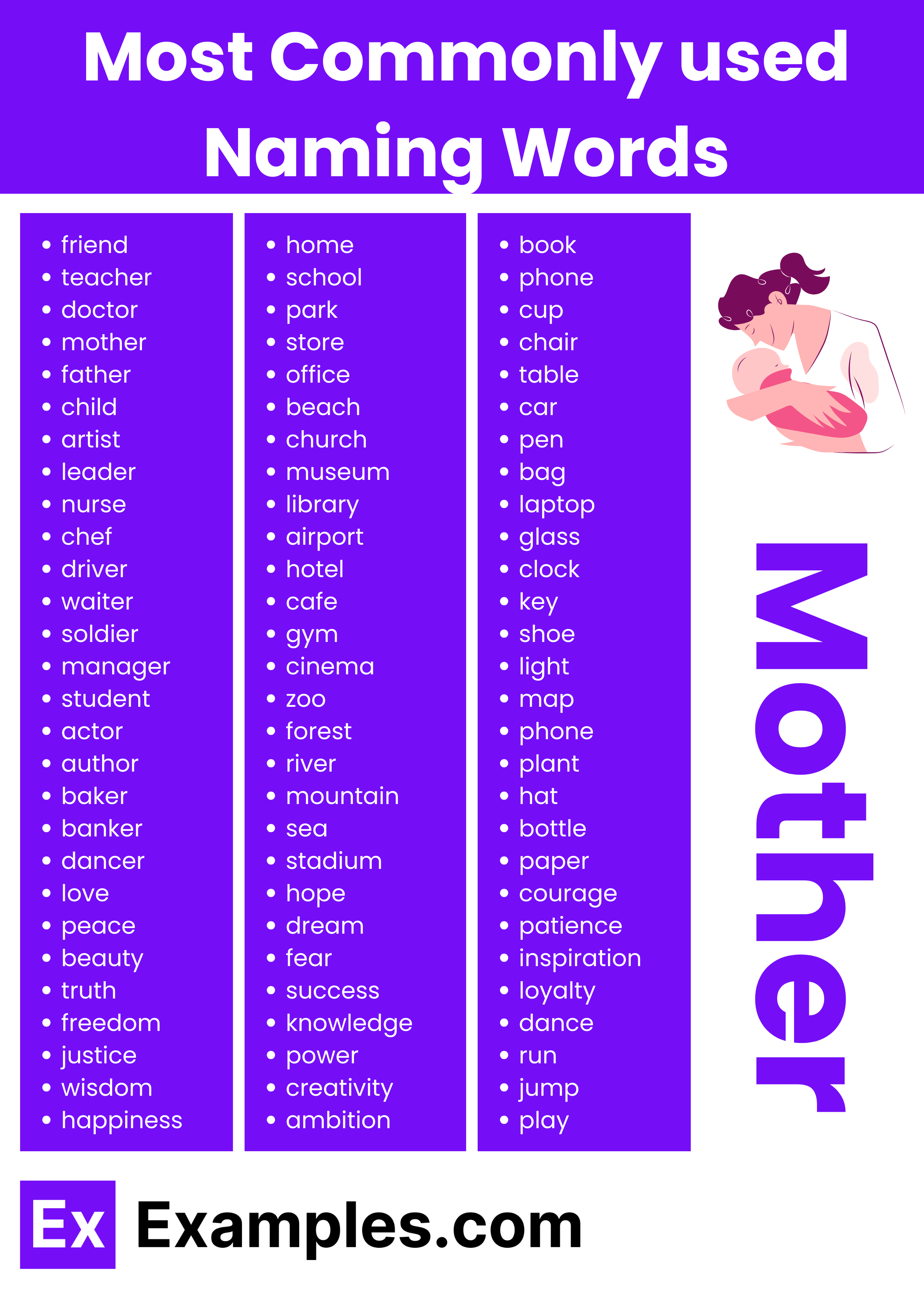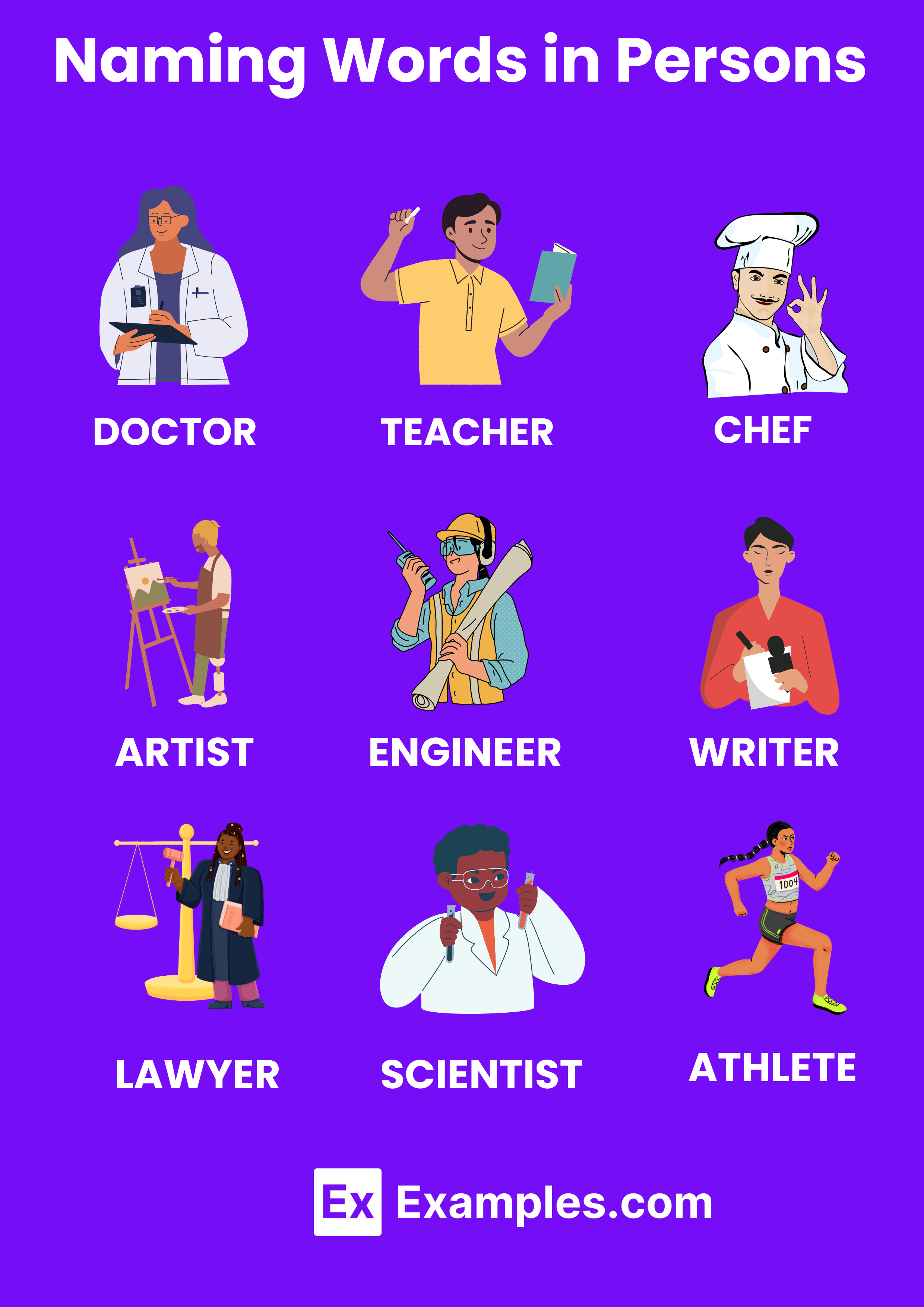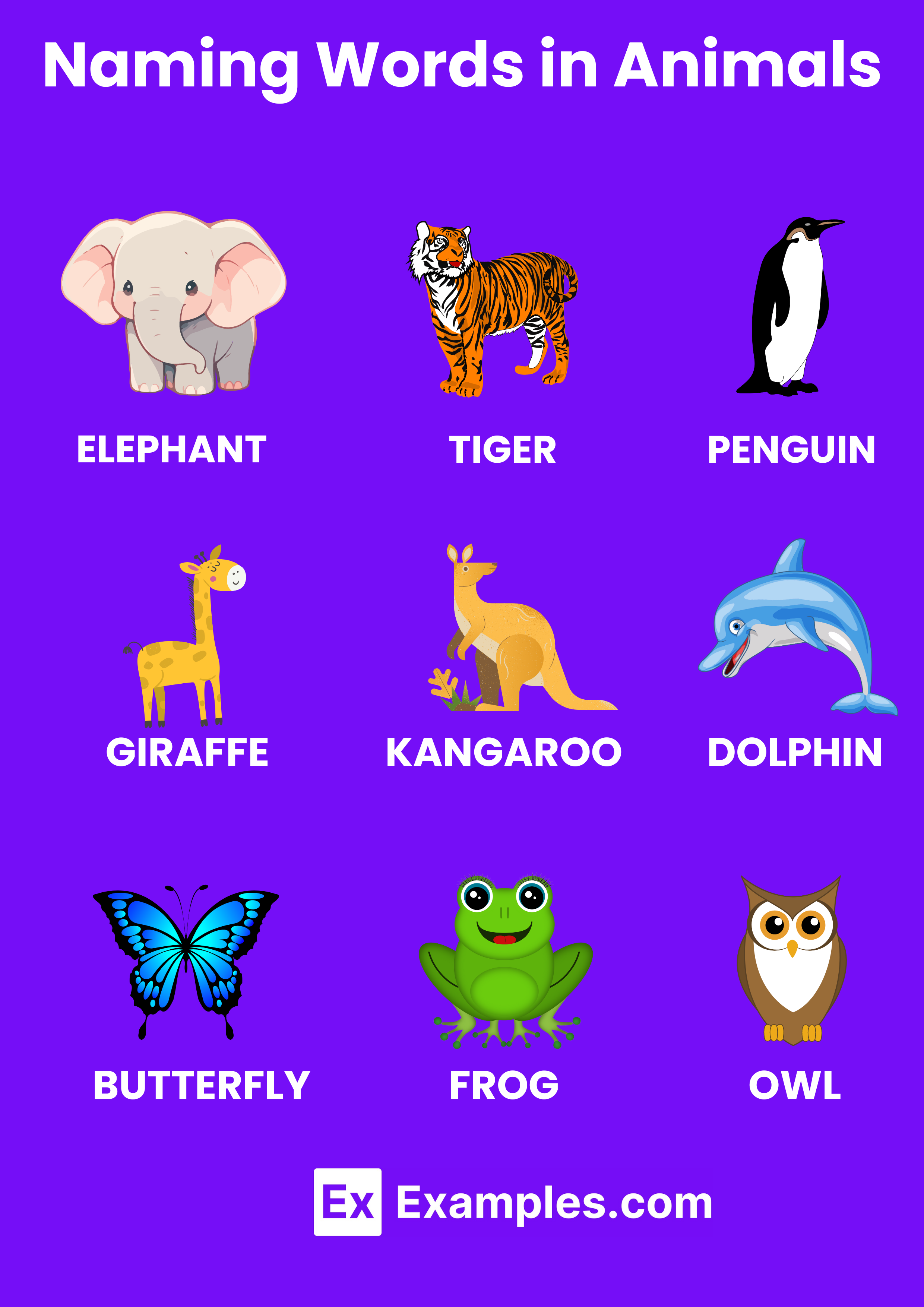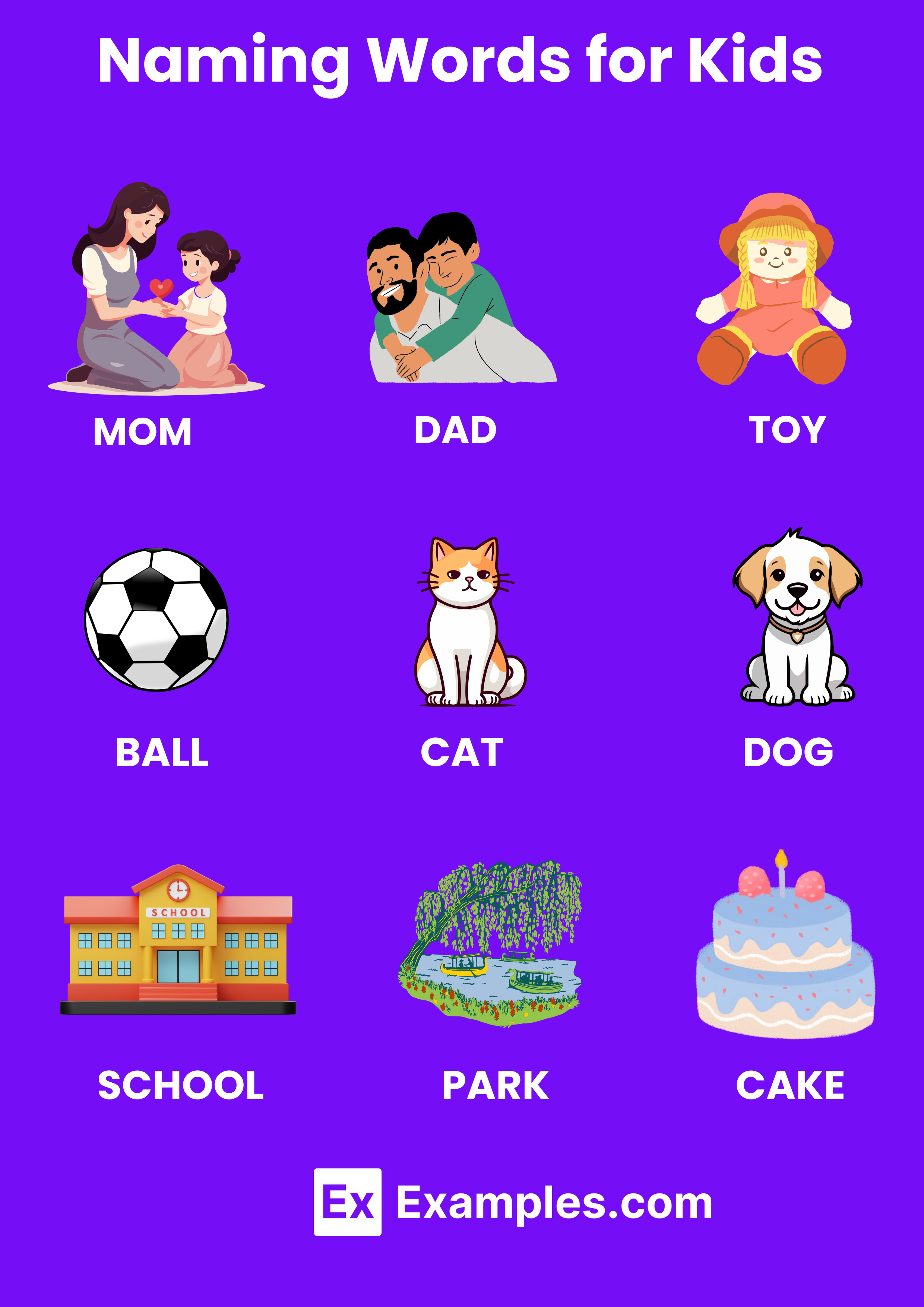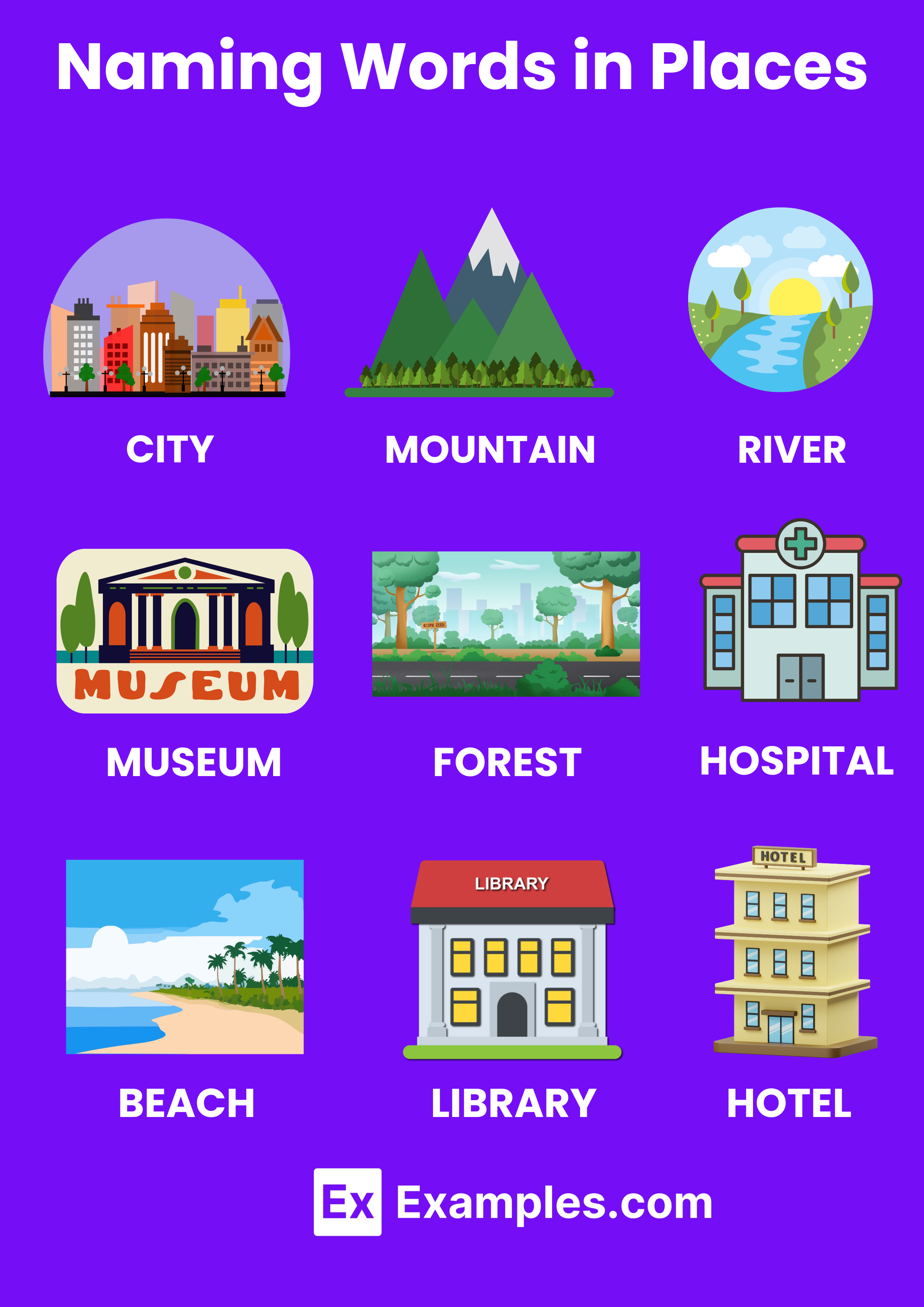Naming Words
Naming words, or nouns, are the keystones of English language, serving as the foundation of our communication. They identify people, places, things, or ideas, giving them a distinct identity in our sentences. Understanding and correctly using naming words enhances clarity and precision in our expressions. This article explores the vast landscape of nouns, offering examples that range from everyday objects to abstract concepts. It’s a journey through the heart of language, essential for students, writers, and anyone keen to polish their linguistic skills.
Download Most Commonly used Naming Words - PDF
Most Commonly used Naming Words
| friend | home | book | love | dance | day |
| teacher | school | phone | peace | run | year |
| doctor | park | cup | beauty | jump | hour |
| mother | store | chair | truth | play | week |
| father | office | table | freedom | walk | month |
| child | beach | car | justice | cook | minute |
| artist | church | pen | wisdom | sing | second |
| leader | museum | bag | happiness | write | night |
| nurse | library | laptop | hope | study | morning |
| chef | airport | glass | dream | paint | evening |
| driver | hotel | clock | fear | drive | afternoon |
| waiter | café | key | success | swim | weekend |
| soldier | gym | shoe | knowledge | fly | season |
| manager | cinema | light | power | fix | holiday |
| student | zoo | map | creativity | climb | age |
| actor | forest | phone | ambition | throw | century |
| author | river | plant | courage | catch | decade |
| baker | mountain | hat | patience | kick | era |
| banker | sea | bottle | inspiration | shout | millennium |
Naming Words in Persons
Understanding naming words related to persons is essential for clear and effective communication. These nouns help us specify individuals in various roles and relationships, enhancing both written and verbal exchanges. Identifying people by their roles or relations provides clarity and context in discussions, making this category of naming words vital for everyday interaction.
- Doctor – A medical professional who diagnoses and treats illnesses.
- Teacher – An individual who instructs or educates students.
- Chef – A trained cook who leads a kitchen in preparing meals.
- Artist – Someone skilled in creating art, such as painting, sculpture, or music.
- Engineer – A professional who designs, builds, or maintains engines, machines, or structures.
- Writer – A person who composes written work, such as books, articles, or scripts.
- Lawyer – A legal professional who advises or represents clients in court.
- Scientist – An expert in science, conducting research to advance knowledge.
- Athlete – An individual who competes in physical sports.
- Nurse – A healthcare professional providing medical care to patients.
Naming Words in Animals
Naming words for animals enrich our language, allowing us to identify and describe the vast diversity of wildlife. These nouns not only name common pets and farm animals but also exotic creatures from around the world. Understanding these naming words enhances our ability to share and gain knowledge about the animal kingdom.
- Elephant – A large, herbivorous mammal with a trunk, native to Africa and Asia.
- Tiger – A large wild cat with a distinct orange coat and black stripes.
- Penguin – A flightless bird, primarily found in the Southern Hemisphere, known for its distinctive black and white plumage.
- Giraffe – The tallest living terrestrial animal, known for its long neck and legs.
- Kangaroo – A marsupial from Australia known for its powerful hind legs and hopping movement.
- Dolphin – A highly intelligent aquatic mammal known for its playful nature.
- Butterfly – An insect with large, often brightly colored wings, undergoing complete metamorphosis.
- Frog – A tailless amphibian with a short body, protruding eyes, and powerful hind legs for leaping.
- Owl – A nocturnal bird of prey with large eyes and a flat face.
- Dog – A domesticated carnivorous mammal known for its loyalty and companionship.
Naming Words in Things
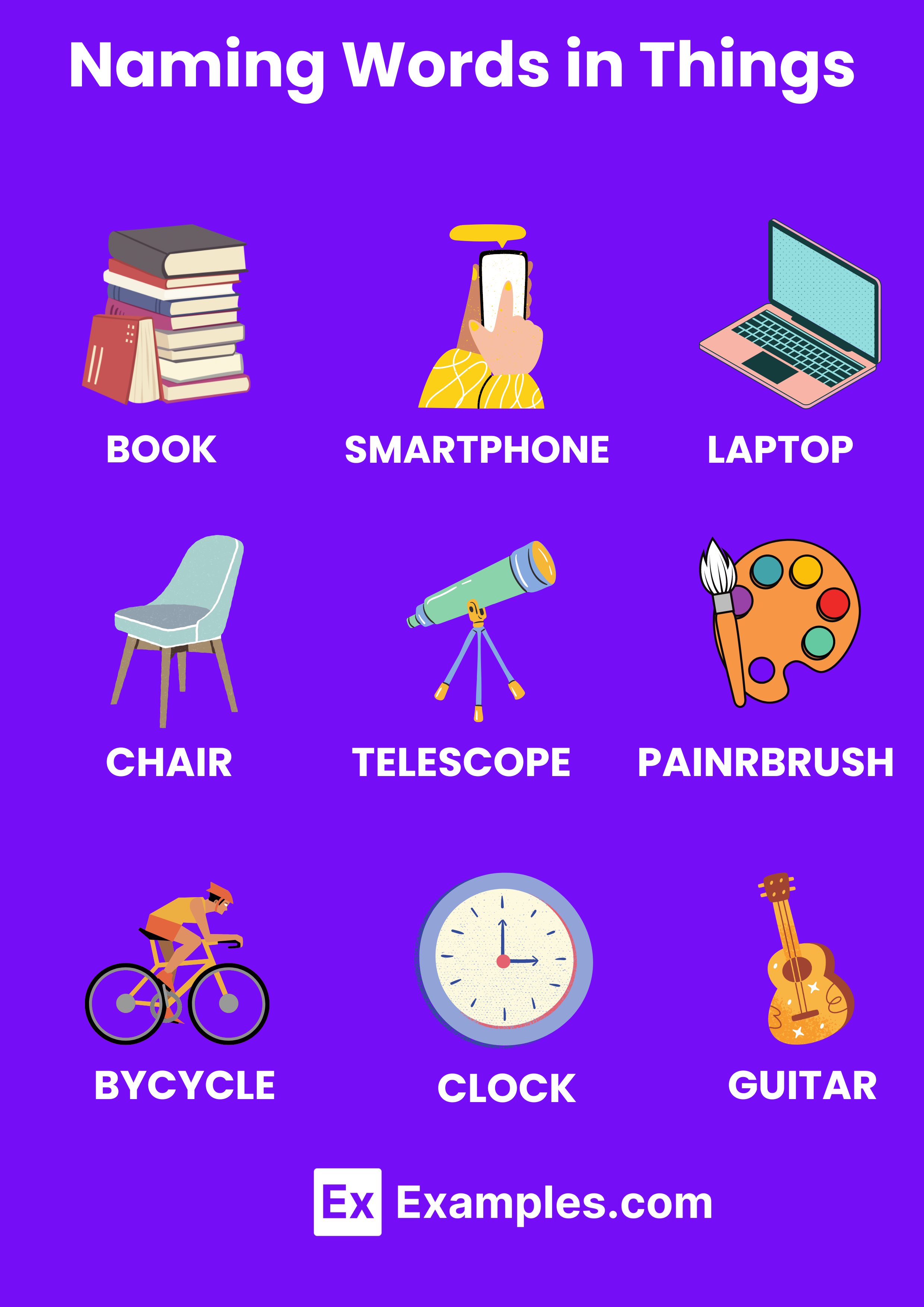
Naming words in things are nouns that help us to categorize and describe objects in our surroundings. From everyday household items to technological gadgets, these words play a crucial role in our ability to interact with and understand the world around us.
- Book – A set of printed pages, bound together, containing text or illustrations.
- Smartphone – A mobile phone offering advanced features, including internet connectivity.
- Laptop – A portable personal computer with a screen and keyboard.
- Chair – A piece of furniture designed for one person to sit on.
- Telescope – An optical instrument designed to make distant objects appear nearer.
- Paintbrush – A tool used for applying paint or other substances to surfaces.
- Bicycle – A human-powered vehicle with two wheels in tandem.
- Clock – A device for measuring and indicating time.
- Guitar – A stringed musical instrument played with fingers or a pick.
- Umbrella – A device used for protection against rain or sunlight, consisting of a collapsible canopy.
Naming Words for Kids
Naming words for kids are simple, easily understandable nouns that introduce young learners to the basics of language. These words are essential for building vocabulary and helping children describe their world.
- Mom – A term for a mother or female parental figure.
- Dad – A term for a father or male parental figure.
- Toy – An object for children to play with.
- Ball – A round object used in many types of games and sports.
- Cat – A small domesticated carnivorous mammal with soft fur.
- Dog – A domesticated mammal known for its loyalty and companionship.
- School – A place where children go to learn.
- Friend – A person whom one knows and has a bond of mutual affection.
- Cake – A sweet baked dessert, often decorated and served at celebrations.
- Park – A public outdoor area designed for recreation and enjoyment.
Naming Words in Places
Naming words in places help us identify and differentiate between various locations, from geographical areas to specific buildings. These nouns are crucial for giving directions, sharing experiences, and exploring new destinations.
- City – A large and densely populated urban area.
- Mountain – A large natural elevation of the earth’s surface rising abruptly from the surrounding level.
- River – A large natural stream of water flowing in a channel to the sea, a lake, or another river.
- Museum – A building where objects of historical, scientific, artistic, or cultural interest are stored and exhibited.
- School – An institution for educating children.
- Hospital – An institution providing medical and surgical treatment and nursing care for sick or injured people.
- Beach – A pebbly or sandy shore, especially by the ocean between high and low water marks.
- Library – A building or room containing collections of books, periodicals, and sometimes films and recorded music for people to read, borrow, or refer to.
- Hotel– A place where people pay to sit and eat meals that are cooked and served on the premises.
- Forest – A large area covered chiefly with trees and undergrowth.
Expanding your vocabulary with new words not only enriches your language but also enhances your ability to express thoughts and ideas precisely. Whether for academic success, professional advancement, or personal growth, embracing new words opens up worlds of communication possibilities. Dive into the joy of learning and let each new word you discover be a step towards broader horizons.



